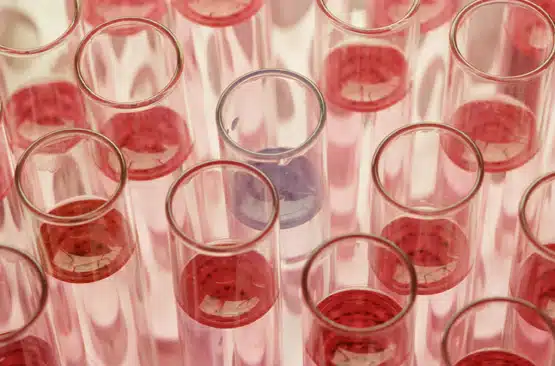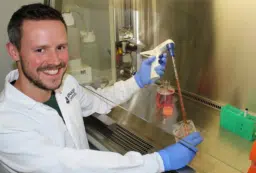
Amy Winship from the Hudson Institute for Medical Research is working on a new approach that uses an antibody to block a particular protein that causes the tumour to grow. This will prevent the need for a hysterectomy and will reduce the growth and spread of the cancer.
Endometrial cancer occurs in the inner lining of the uterus and is the most commonly occurring gynaecological cancer worldwide. There is no screening test for early detection, which means that cancer is often diagnosed at a late stage, when it has already spread.
Current treatment usually involves a hysterectomy, which removes all of part of the womb. In most cases, this leads to a good prognosis and high survival rate. However, it’s not effective for recurring or very aggressive cancer, and it also leaves patients infertile.
So far, the results from Amy’s research are looking promising, and she is now looking for any potential side effects associated with targeting this protein. She is hoping to see this research in human clinical trials in the not too distant future.
Amy presented her research at Fresh Science Victoria 2016. Fresh Science is a national program that helps early-career researchers find and share their stories of discovery. Over 120 early-career researchers nominated for Fresh Science 2016, the Victoria round of which was held at ScienceWorks Museum (media training), Melbourne Museum (school forum) and the Kelvin Club (public challenge event) and was supported by Museum Victoria, the CSIRO, Deakin University, Monash University, the University of Melbourne, RMIT University and Swinburne University of Technology.
Contact: Amy Winship, Hudson Institute of Medical Research, 0401 657 785, amy.winship@hudson.org.au






 Fresh Science is on hold for 2022. We will be back in 2023.
Fresh Science is on hold for 2022. We will be back in 2023.